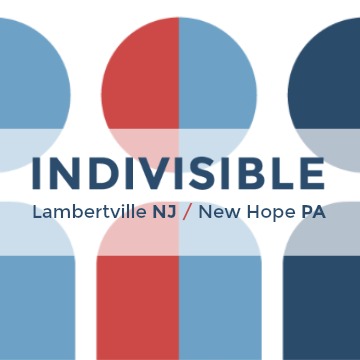Time to THRIVE: From the multilateral racial, health, economic, and environmental crises to the THRIVE Agenda
Contributed by Alexis Berends.
In recent years, the deep links between racism and climate change have been coming to the forefront. Issues of Environmental Injustice have been highlighted in such catastrophes as Hurricanes Katrina and Maria, the fight to protect our water at Standing Rock, as well as within the Covid 19 crisis.
Climate change and racial inequality are the direct result of industry – from clearing lands to grow cotton, sugar and tobacco in our early colonial history, to modern industrialization of agriculture, fishing, and the extraction of fossil fuels. In order to expand the colonial agricultural industry, the colonial countries in the Americas enslaved the Native populations, forcing them to exploit the lands they spent 11,000 years developing an intimate stewardship with. Others were expelled from their lands, or worse. Later, Africans were brought across the Atlantic in shackles, solidifying the industrialization of the Americas and forever imprinting a framework for systemic racism.
These practices exist to this day, albeit in seemingly innocuous policies. We still force Tribal communities from their sacred lands to extract fossil fuels and build coinciding infrastructure under the guise of “energy security.” It exists in our use of immigrant labor, many with indigenous roots, to work our fields in illegal and inhumane conditions; in our crowded prisons where a disproportionate number of black and brown inmates make many of the products that proudly bare the label “Made in America”; and by underpaying workers in the critical healthcare and service industries which are traditionally dominated by women, especially women of color. Since its birth, America has been mistreating the environment, people of color, indigenous cultures and lands, and women alike. We can and must do better.
BIPOC and marginalized communities bear the brunt of our unsustainable industries. For example, New Jersey is home to the most superfund sites per capita, most of which are in the Black and Latinx neighborhoods of Camden and Newark. Pennsylvania is #3 on the list of having the most superfund sites per capita, primarily in the communities surrounding Philadelphia and Chester counties. People in these areas commonly suffer from chronic lung diseases, such as asthma, which have exacerbated COVID-19 infections disproportionately. They have been screaming “I can’t breathe” for generations, and it’s no wonder that both Eric Garner and George Floyd had asthma.
The COVID Crisis has put more pressure on our already fragile system. We face staggering unemployment levels, a broken economy, increased stress on women and mothers who are forced to assume multiple roles in unprecedented circumstances – especially women of color, and an overburdened healthcare system. At the same time, climate scientists are urging us to dramatically reduce carbon emissions by 2030 – just nine years away – and meet carbon neutrality by 2050 in order to slow global warming by 1.5 degrees celsius above pre-industrial levels. A dire existential threat is staring us in the face yet we have our blinders on.
So how do we build a more just world? What policies are being introduced that could create a more sustainable future – environmentally, socially, and culturally?
The THRIVE Agenda: Transform, Heal, and Renew by Investing in Vibrant Economy
Now that the American Rescue Plan has been passed, the next step is to focus on how we will recover from the multifaceted crises we are currently facing. The THRIVE Agenda is a recovery package that calls for transformative, sustainable, and equitable change with meaningful action to respond to the Climate Crisis. THRIVE will provide access to healthcare, childcare, elderly care, and assistance for the disabled and chronically ill, and provides a framework for the just transition to sustainable development, particularly in the energy, agricultural and construction industries. Within this framework the resolution will focus on economic, racial, health, and environmental recoveries through 8 interrelated pillars:
- Creation of 16 million good, safe jobs with family sustaining wages that have access to unions;
- Investment in Black, Brown, and Indigenous communities;
- Combating problems of racial and environmental injustice and ensuring healthy lives for all, as declared by the United Nations Universal Declaration of Human Rights of which the United States is a signatory;
- Ensuring fairness for workers and communities affected by economic transitions;
- Building the power of workers to fight inequality;
- Strengthening and healing the nation-to-nation relationship with sovereign Native
Nations and implementation of the United Nations Declaration on the Rights of
Indigenous Peoples, adopted by the United States in 2010; - Averting climate and environmental catastrophe while building climate resilience to mitigate against the impacts of global warming and rising sea levels;
- Reinvesting in public institutions that enable workers and communities to Thrive.
Support for the THRIVE Agenda
At present, the THRIVE Agenda is supported by 89 members of congress, 10 Senators and roughly 300 organizations, including leading labour unions such as the American Federation of Teachers; racial justice groups including Movement 4 Black Lives and the NAACP; environmental groups such as the Sierra Club, Greenpeace and Natural Resources Defense Council; indigenous groups, immigrants’ rights groups, women’s rights groups, faith groups, think tanks, and even Indivisible. In a survey done by Data for Progress, the majority of Americans, including in swing states and battleground House districts, support the 8 Pillars of the THRIVE Agenda with support for each pillar ranging from 54-77% of all registered voters, and as high as 72-91% of registered Democrats.
Call to Action
While there is growing support in both the House and the Senate, we still need to apply pressure on our elected officials. Many Democrats are still needed as cosponsors, and zero Republicans have yet to sign on. So far, only 3 congresspersons from both New Jersey and Pennsylvania respectively have signed, and both Malinowski and Fitzpatrick have yet to cosponsor.
Reach out to your representatives and let them know we support the THRIVE Agenda. Give them a call, shoot them an email, and tag them on social media using the hashtags #TimetoTHRIVE so they can see how strong our movement is.
It is time for us to recover as a nation by addressing the multilateral economic, racial, health, and environmental crises we have collectively experienced en masse this past year. We have been given an opportunity to rewrite the future of our country to ensure that it provides a healthy, economically and environmentally sustainable life for all. Don’t let this opportunity pass us by. This is our time to THRIVE.



